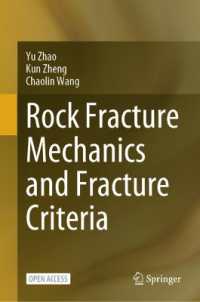Full Description
This book challenges the reader to consider issues of language and linguistic discrimination as they impact world language education. Using the nexus of race, language, and education as a lens through which one can better understand the role of the world language education classroom as both a setting of oppression and as a potential setting for transformation, Democracy and World Language Education: Toward a Transformation offers insights into a number of important topics.
Among the issues that are addressed in this timely book are linguicism, the ideology of linguistic legitimacy, raciolinguistics, and critical epistemology. Specific cases and case studies that are explored in detail include the contact language Spanglish, African American English, and American Sign Language. The book also includes critical examinations of the less commonly taught languages, the teaching of classical languages (primarily Latin and Greek), and the paradoxical learning and speaking of "critical languages" that are supported primarily for purposes of national security (Arabic, Chinese, Farsi, Russian, etc.).
Contents
Preface; Timothy Reagan.
Abbreviations.
Acknowledgments.
Chapter 1. World Language Educators as Dodos: How Bad Can It Get?
Chapter 2. Linguicism and the Ideology of Linguistic Legitimacy.
Chapter 3. Linguicism and Raciolinguistics.
Chapter 4. A Critical Epistemology for World Language Education.
Chapter 5. Reasons to Not Take Spanish: A Case for the Less Commonly Taught Languages.
Chapter 6. Yes, Virginia: ASL is Really a Foreign Language.
Chapter 7. The Transformational Power of the Classics.
Chapter 8. Linguistic Treason: Speaking the Language of the Enemy.
Chapter 9. For Every Problem, There's a Simple Solution.







